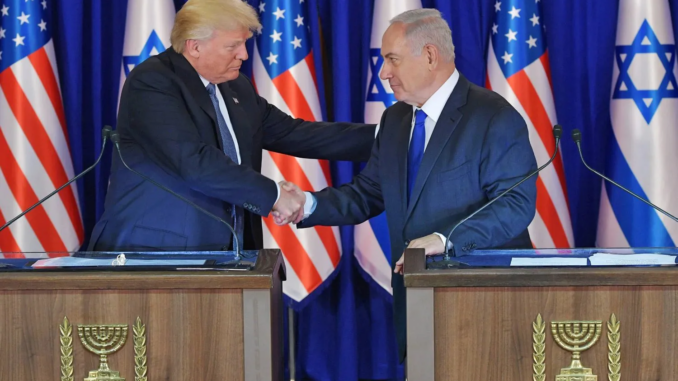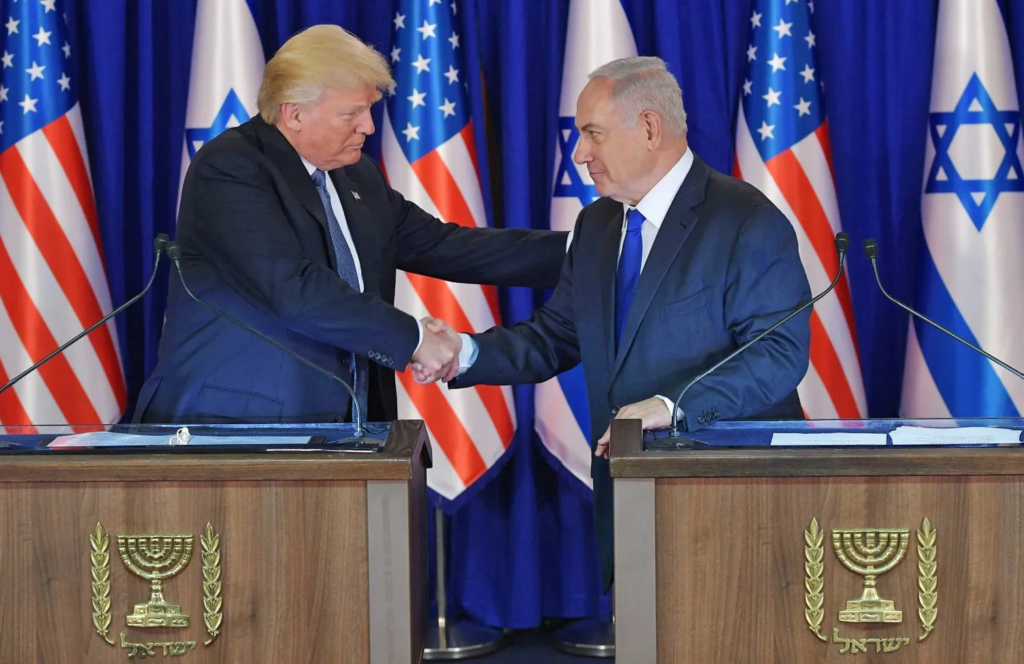

Israel Removes All Tariffs on US Goods to Avoid President Trump’s Reciprocal Tariffs
In a surprising move, Israel has decided to remove all tariffs on U.S. goods, a strategic decision aimed at avoiding reciprocal tariffs that were threatened by former U.S. President Donald Trump. This shift in policy has sent ripples through the global trade community, highlighting the delicate nature of international trade relations and the significance of the U.S.-Israel economic partnership.
Background: The U.S. Threat of Retaliatory Tariffs
The relationship between the U.S. and Israel has long been marked by strong economic and political ties. The two countries share a robust trade relationship, with the U.S. being one of Israel’s largest trading partners. However, this relationship was recently tested when former President Trump announced the potential for retaliatory tariffs on Israeli goods following a series of trade disagreements.
Trump, known for his “America First” trade policies, had previously imposed tariffs on a wide range of products from various countries, including steel and aluminum imports. He had warned that if Israel did not align with U.S. trade expectations, it would face similar penalties. The threat of these reciprocal tariffs was concerning for Israel, given the significant trade between the two nations, particularly in sectors like defense, technology, and agriculture.
Israel’s Strategic Move to Remove Tariffs
In a bid to avoid escalating tensions and ensure the continued strength of its trade relationship with the U.S., Israel made the decision to remove all tariffs on American goods. The Israeli government, led by Prime Minister Naftali Bennett, announced the tariff removal in a statement that emphasized the importance of maintaining strong bilateral ties with the United States.
“This decision reflects Israel’s commitment to fostering open and fair trade with the U.S., ensuring that our economic relationship continues to grow and thrive,” said Bennett during a recent press conference. “We value our partnership with the United States and are dedicated to resolving any trade differences through dialogue and mutual cooperation.”
The announcement was seen as a proactive measure to prevent further deterioration in trade relations and to avoid the punitive economic consequences that could arise from Trump’s proposed tariffs.
The Economic Implications for Israel
Israel’s decision to remove tariffs on U.S. goods is expected to have a significant impact on various sectors of its economy. The removal of these tariffs will benefit American exporters, particularly those in industries such as electronics, machinery, and agricultural products. These industries, which have strong trade ties to Israel, will see reduced costs and increased competitiveness in the Israeli market.
For Israel, the move is expected to enhance its access to key American goods, particularly in high-tech industries where the U.S. remains a dominant global player. Additionally, the decision is likely to encourage increased investment from American companies looking to capitalize on the favorable trade environment between the two nations.
While the decision may come at the cost of short-term revenue from tariff collection, Israeli economists argue that the long-term benefits of maintaining strong trade ties with the U.S. will outweigh the potential losses. The U.S. remains Israel’s largest trading partner, and the economic collaboration between the two countries has been a cornerstone of Israel’s growth in industries such as defense technology, cyber security, and medical innovation.
U.S.-Israel Trade Relations: A History of Partnership
The trade relationship between the U.S. and Israel dates back to the establishment of the State of Israel in 1948. Over the years, the two countries have built a strong economic partnership, with the U.S. providing Israel with both financial aid and access to its markets. In return, Israel has become a critical player in technological innovation, particularly in fields such as defense, agriculture, and software development.
In recent years, the U.S.-Israel relationship has been bolstered by the United States’ role as Israel’s primary security partner, as well as a commitment to collaborative projects in fields like research and development. The two countries signed a Free Trade Agreement (FTA) in 1985, which has helped to reduce trade barriers and increase the flow of goods and services.
Israel’s decision to remove tariffs on U.S. goods is seen as a reflection of this long-standing partnership, with both nations eager to preserve and expand their economic and political alliance.
The International Response
Israel’s move to remove tariffs has been met with both praise and skepticism from the international community. Many trade analysts view the decision as a diplomatic win for Israel, reinforcing its relationship with the U.S. at a time when global trade tensions are high. The removal of tariffs may also serve as a model for other countries looking to avoid escalating trade conflicts with major economic powers like the U.S.
However, some critics have raised concerns about the potential impact of the decision on Israel’s trade relations with other countries. Removing tariffs on U.S. goods could prompt other nations to demand similar concessions, potentially complicating Israel’s broader trade policy.
The European Union, in particular, has been critical of U.S. trade policies under Trump’s administration, and there are concerns that Israel’s tariff removal could lead to a shift in its trade focus, potentially sidelining other international partners.
The Future of U.S.-Israel Trade Relations
The removal of tariffs marks a significant moment in U.S.-Israel trade relations, but it also raises important questions about the future of international trade. With global economic conditions still fluctuating and trade policies continuing to evolve, it remains to be seen how the U.S. will respond to Israel’s move.
For Israel, the decision is a sign of its commitment to a strong and mutually beneficial relationship with the U.S. Moving forward, it is likely that both countries will continue to collaborate on trade initiatives, ensuring that their economic partnership remains robust in the years to come.
Conclusion
Israel’s decision to remove all tariffs on U.S. goods represents a strategic move to preserve its long-standing economic relationship with the United States. In the face of potential reciprocal tariffs from former President Trump, Israel has chosen diplomacy and cooperation to safeguard its economic interests. The removal of tariffs is a win for both countries, signaling the importance of maintaining strong trade relations amid a complex global economic landscape. As both nations continue to navigate the challenges of international trade, this decision sets a positive precedent for future collaboration and mutual prosperity.